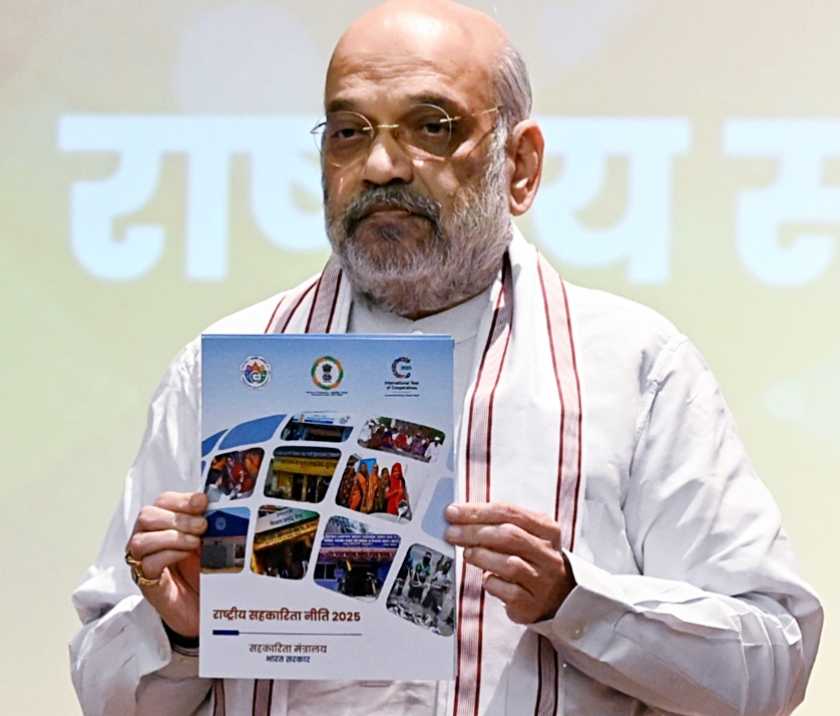Union Home Minister and Minister of Cooperation Amit Shah unveiled the National Cooperative Policy 2025 at the Atal Akshay Urja Bhawan on Thursday, stating that the government is moving forward with the goal of having at least one cooperative in every village.
The policy aimed to strengthen grassroots cooperative units and ensure inclusive growth, especially among villages, farmers, women, Dalits, and tribal communities.
Speaking at the event, Amit Shah said, “In 2002, the Government of India introduced the Cooperative Policy. At that time, the BJP was in the government. The second Cooperative Policy has been brought by the BJP government. We are moving forward with a goal to have at least one cooperative in every village.”
“The government’s viewpoint, which understands India, its development, and all the factors necessary for India’s development, is the only one that can give importance to the cooperative sector. If the basic unit of the country and the economy is prosperous, employed and satisfied, then that economic model can never fail.” Shah added.
The minister highlighted the core vision and mission behind the new policy, stating that it placed people and rural development at the centre of the plan.
“While making the cooperative policy, it was taken care of that the central point of the policy will be people, villages, agriculture, women of the village, Dalits, tribals. In one sentence, its vision is to make a developed India in 2047 through the prosperity of cooperation,” Shah said.
He elaborated on the mission, saying, “Its mission is to develop professional, transparent, technical, responsible and financially independent and successful small cooperative units.”
According to the Ministry of Cooperation, the new cooperative policy 2025 aims to revive and modernise the cooperative sector, as well as realise the vision of prosperity through cooperation by creating a roadmap at the grassroots.
In 2002, India’s first National Cooperative Policy was issued, providing a basic framework for the better management of economic activities within cooperative institutions.
“In the last 20 years, many major changes have taken place in society, the country and the world due to globalisation and technological advancement. Keeping these changes in mind, it became necessary to formulate a new policy so that cooperative institutions can be made more active and useful in the current economic scenario and the role of the cooperative sector can be strengthened in achieving the goal of Viksit Bharat 2047,” said the Ministry.
The objective of the National Cooperative Policy is to make cooperative institutions inclusive, manage them professionally, prepare them for the future, and be able to create large-scale employment and livelihood opportunities, especially in rural India. (ANI)








